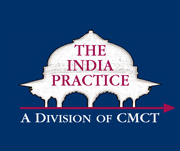Old notions of "majority" and "minority" cultures within an organization are rapidly becoming out of date.
At Xpede Corporation, a California startup launched about a year ago to provide financial service products through Web-based applications, less than half of the 55 employees are Americans of European descent. Nearly every other major US ethnic group is represented, as well as a range of India's many communities, and countries as different as Vietnam, Germany, Mexico, the Philippines and Russia. One quarter of the workforce is powered by women, in a variety of engineering positions as well as more traditional administrative and marketing roles. Educational and corporate backgrounds are likewise very diverse, as are individual personalities and approaches to problems.
Such diversity can be viewed as a difficult challenge or as an exciting opportunity, depending on how enlightened a company's approach to multicultural management is.
When teams - project, management or problem-solving - are very diverse, there is room for dysfunction of various sorts: misunderstandings and miscommunications, style and interpersonal conflicts, unmet needs, insensitive behavior that is experienced as prejudiced, trust and cohesion problems. The costs of such dysfunction in terms of productivity can be considerable.
On the other hand, if such challenges are properly addressed, today's diversity can be a source of immense creativity for innovation, networking, marketing and organizational culture.
Today's cutting-edge approach to working with team and company multicultural diversity is not to seek assimilation of newcomers into an undifferentiated "melting pot," nor to stop at creating understanding and appreciation of cultural differences.
Instead, companies seek to create a team culture that is fully inclusive, supporting and nurturing all members, with no inner-circle vs. outer-circle distinctions of value and participation.
Leaders at all levels can build such multicultural teams by following these basic principles:
- Acknowledge the diversity of your team as a resource
- Respect the uniqueness of every individual
- Focus the tam on a clear common goal
- Establish cohesion around fundamental core values and ground rules
- Encourage expression of diverse viewpoints and open debate about their merits
- Lead your team in the fun and delight that multicultural camaraderie can provide!
© Karine Schomer. All Rights Reserved. Originally published in Siliconindia. Permission to reprint is granted, provided the article and byline are printed intact, with all links visible and made live if distributed in electronic form.
Karine Schomer, PhD is President of Change Management Consulting & Training, LLC, and leads The CMCT India Practice, specializing in cross-cultural training and management consulting for doing business with India, competitive advantage through cross-cultural awareness, business etiquette and protocols, cross-cultural communication and teamwork skills, outsourcing management best practices, and offshore team leadership strategies. For more learning resources, check The Working and Managing Across Cultures Blog.



